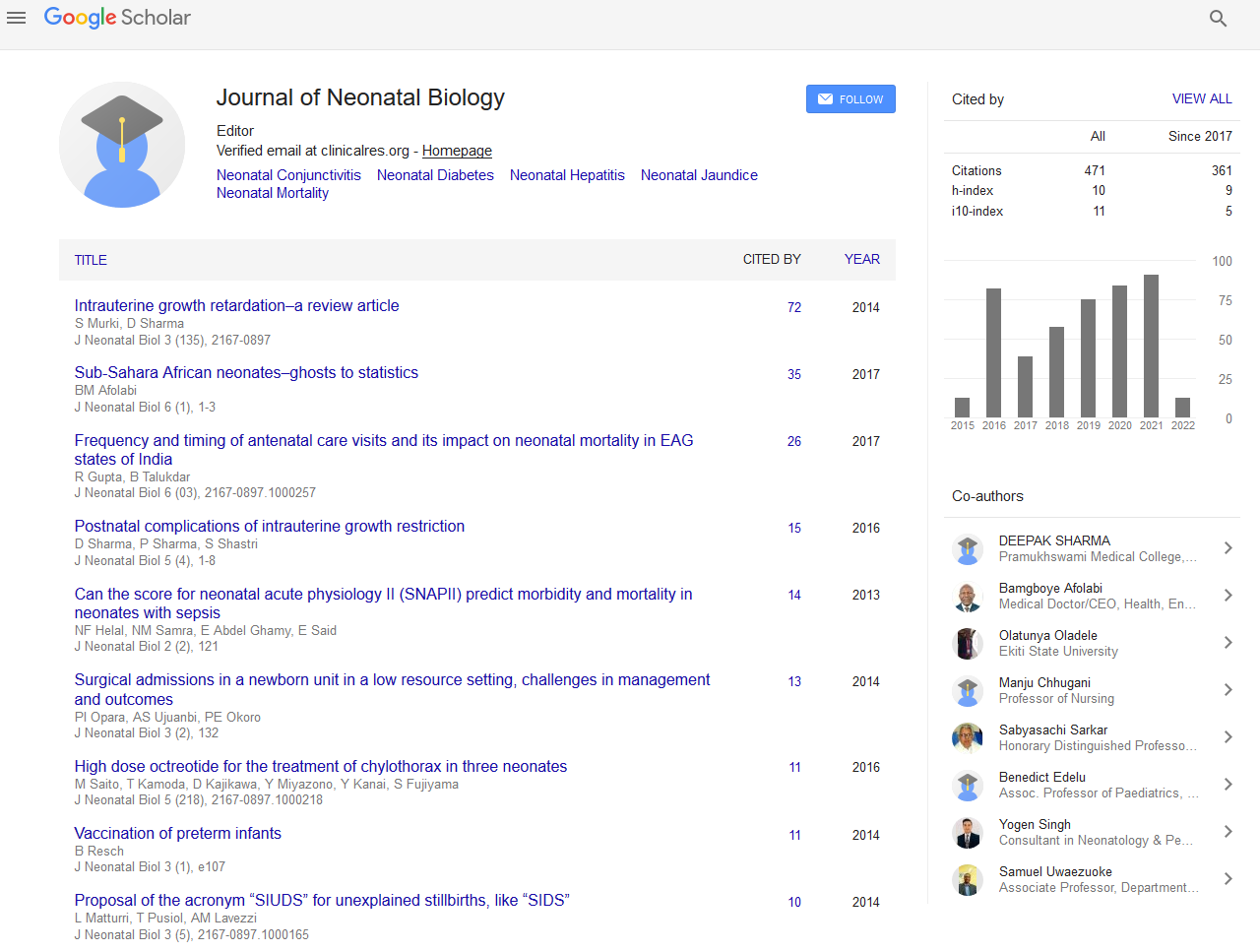PMC/PubMed Indexed Articles
Indexed In
- Genamics JournalSeek
- RefSeek
- Hamdard University
- EBSCO A-Z
- OCLC- WorldCat
- Publons
- Geneva Foundation for Medical Education and Research
- Euro Pub
- Google Scholar
Useful Links
Share This Page
Journal Flyer

Open Access Journals
- Agri and Aquaculture
- Biochemistry
- Bioinformatics & Systems Biology
- Business & Management
- Chemistry
- Clinical Sciences
- Engineering
- Food & Nutrition
- General Science
- Genetics & Molecular Biology
- Immunology & Microbiology
- Medical Sciences
- Neuroscience & Psychology
- Nursing & Health Care
- Pharmaceutical Sciences
New DSM-5 criteria for ADHD- Does it matter?
9th International Conference on Neonatology and Pediatric Neurology
November 28-30, 2016 Valencia, Spain
Yair Sadaka
Soroka University Medical Center, Israel
Scientific Tracks Abstracts: J Neonatal Biol
Abstract:
Objective: The new diagnostic statistical manual (DSM) requires the presence of fewer symptoms to make a diagnosis of adult ADHD while the criteria for diagnosis in childhood are unchanged as compared to previous editions. This study examines the prevalence of adults meeting the revised DSM-5 symptoms cutoff as compared to the previous DSM-IV symptoms cutoff. Method: This study is part of a larger nationwide study that evaluated the use of, and the attitudes toward, ADHD medications by university students. 445 students from four major university faculties were surveyed and filled out questionnaires for our study. Results: The proportion of participants that met the minimum threshold of six out of nine current symptoms in either of the two DSM-IV symptom domains (inattentive presentation and hyperactive/impulsive presentation) for ADHD was 12.7% while the proportion that met the minimum threshold of five symptoms in either of the DSM-5 symptom domains was 21%. Conclusion: Since the new DSM requires fewer current symptoms for a diagnosis of ADHD, a significant increase (65%) was observed in the number of participants meeting the new cutoff as compared to the old DSM-IV symptoms cutoff. This increase in the number of adults meeting symptoms cutoff may affect the rates of adults diagnosed with ADHD. Using the new criteria may identify more adults with ADHD and fewer diagnoses will be missed. However, meeting the new symptoms cutoff should be considered within the overall clinical context to prevent over-diagnosis.
Biography :
Yair Sadaka is a Pediatric Neurologist, Pediatrician with a PhD in Neurosciences and background in Behavioral Sciences, Computers and Electronics. He is currently working as a Pediatric Neurologist and Pediatrician at Soroka Medical Center and Lecturer at Ben Gurion University. He is an Entrepreneur since 2012 and CEO of LinkCaring Ltd. He was involved in several research fields in the past few years, namely: McDonald criteria for diagnosing pediatric multiple sclerosis at the Hospital for Sick Children, Toronto working on the Canadian Multiple Sclerosis Database; evaluating actigraph in children with epilepsy at the Hospital for sick Children Toronto and Avi Sadeh Tel Aviv University; building and analyzing the epilepsy and sleep database at the Hospital For Sick children. He is working on a web system with a vision of a better communication between the patient, the patient's parents and the health care provider at Soroka Medical Center.
Email: yair.sadaka@gmail.com


